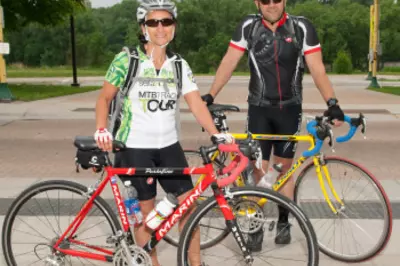Practice Safety

Drive safely
Did you know that:
- In 2011, there were an estimated 5,338,000 police-reported traffic crashes, in which 32,310 people were killed and 1,530,000 people were injured.
- Motor vehicle crashes are the most common cause of serious injury in the U.S.
Some common sense motor vehicle safety tips include:
- Drive safely for the conditions.
- Don’t speed.
- Wear your seat belt.
- Don’t drink and drive.
- Don’t drive when you are drowsy or fatigued.
- If you drive a motorcycle, ALWAYS wear a helmet.
- Always wear safety equipment when recommended—helmets, glasses, gloves, boots, coverings.
- Be alert to toxins that might be on your job site. Follow guidelines when dealing with them, and immediately alert authorities if you suspect a leak.
- Don’t operate equipment when sleepy or taking certain medications.
Be safe on the job
- Always wear safety equipment when recommended—helmets, glasses, gloves, boots, coverings.
- Be alert to toxins that might be on your job site. Follow guidelines when dealing with them, and immediately alert authorities if you suspect a leak.
- Don’t operate equipment when sleepy or taking certain medications.
Be safe when having fun
Did you know that:
- Wearing a bicycle helmet while biking can reduce the risk of brain injury by 88%.
- Head injury may be a factor that increases the risk of Alzheimer’s disease.
- There are an estimated 388,000 drowning deaths worldwide each year. That’s over a thousand drowning deaths each day.
Recreational activities are fun. But it is important to take appropriate precautions to keep activities safe and injury free.
The following are important reminders for staying safe while you are having fun:
- Wear a helmet while biking, skiing, snowboarding, and skateboarding—just to name a few. Make sure the fit is comfortable and snug.
- Wear gear to protect your eyes and mouth when playing contact sports.
- Wear quality shoes designed for your sport and foot type.
- Learn to swim and always swim with a buddy.
- Avoid alcohol when boating or swimming.
- Take special precautions in extreme weather conditions.
- Stay well-hydrated.
Get enough sleep
Did you know that:
- 100,000 motor vehicle accidents are caused by driver drowsiness or fatigue each year.
- The National Sleep Foundation estimates that sleep deprivation and sleep disorders cost Americans more than $100 billion annually in lost productivity, medical expenses, sick leave, and property and environmental damage.
- Sleep deprivation has been linked to health problems, such as obesity, depression, high blood pressure, decreased productivity, and work-related injuries.
Experts recommend that on average, adults should get between seven to nine hours of sleep per night. If you have trouble falling or staying asleep, check out our section on sleep.
Alcoholics Anonymous http://www.aa.org
American Academy of Sleep Medicine www.aasmnet.org/
American Academy of Orthopedic Surgeons – bike helmets http://orthoinfo.aaos.org/topic.cfm?topic=a00425
The Centers for Disease Control - TIPS page (Tobacco Information and Prevention Sources) www.cdc.gov/tobacco
The Centers for Disease Control – Motor Vehicle Safety http://www.cdc.gov/motorvehiclesafety/impaired_driving/impaired-drv_factsheet.html
Healthy Sex.com Health risks http://www.healthysex.com/page/healthysex#healthrisks
National Highway Traffic Safety Administration www.nhtsa.dot.gov/
National Sleep Foundation http://www.sleepfoundation.org
National Institute of Alcohol Abuse and Alcoholism: information on screening tests http://pubs.niaaa.nih.gov/publications/arh28-2/78-79.htm
The U.S. Department of Health and Human Services - National Clearinghouse for Alcohol and Drug Information http://ncadi.samhsa.gov/
World Health Organization – Drowning statistics http://www.who.int/mediacentre/factsheets/fs347/en/
Creagan, E. (2003). How NOT to be my patient: A physician's secrets for staying healthy and surviving any diagnosis. Health Communications, Inc. FL.
Prochaska, J.O., Norcross, J.C., Diclemente, C.C. (1994). Changing for Good. New York: Avon Books.
Seigal, B., MD, August, Yosaif (2003). Help Me to Heal: A Practical Guidebook for Patients, Visitors and Caregivers. Hay House Inc.
Stoppard, Miriam, MD (2003). Healthy Sex. Dorling Kindersley.
U.S. Department of Transportation. (2013). 2011 data summary. Fatality Analysis Reporting System General Estimates System.






